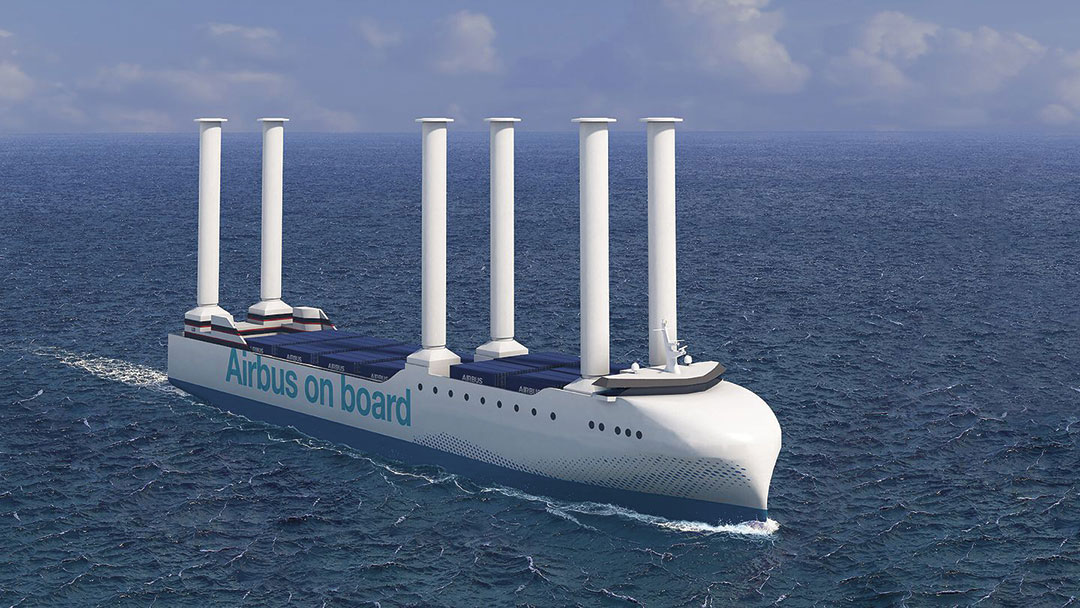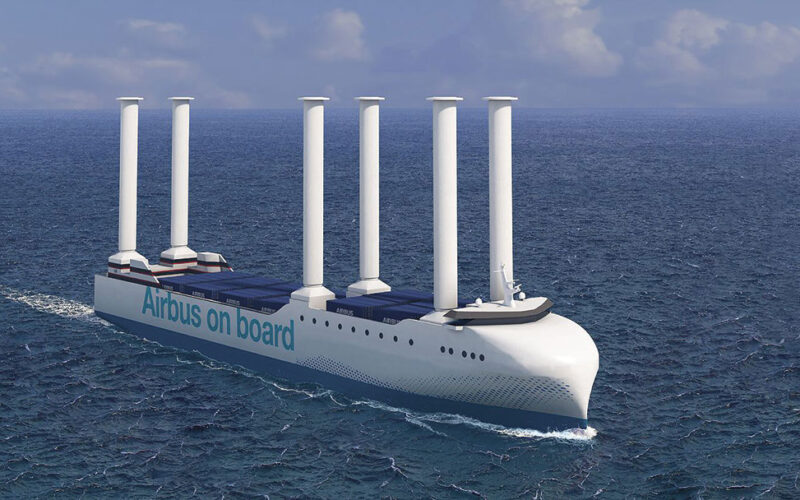
While primarily known as an aircraft manufacturer, Airbus maintains its own fleet of three chartered vessels that ferry aircraft subassemblies across the Atlantic from Saint-Nazaire, France, to the company’s single-aisle aircraft final assembly line in Mobile, Alabama.
With A320 production at the U.S. plant expected to climb to 75 aircraft per month by 2026, Airbus has commissioned shipowner Louis Dreyfus Armateurs to build three new low-emission roll-on/roll-off ships that the company will lease.
The new ships are expected to join the Airbus fleet starting in 2026.
The new streamlined Airbus vessels will be owned and operated by Louis Dreyfus Armateurs and will be fitted with six Flettner rotors – large vertical, rotating cylinders that act like airfoils and use the wind to generate forward thrust.
In addition, the ships will incorporate two dual-fuel engines running on maritime diesel oil and e-methanol and feature routing software that will be used “to plot the most effective course that takes advantage of prevailing winds and currents,” the company said.
Each vessel will be capable of carrying seventy 40-foot containers and six single-aisle aircraft sub-assembly sets – up from the four-set maximum that can be carried aboard the current fleet of Airbus ships.
According to Airbus, implementation of the new marine technology will help reduce the company’s total carbon emissions by 63 percent – or from 68,000 to 33,000 tons annually – by 2030.
“The renewal of our marine fleet is a major step forward in reducing our environmental impact,” said Airbus’ Head of Sustainability & Environment, Nicolas Chrétien. “The latest generation of vessels proposed by Louis Dreyfus Armateurs are more fuel efficient than their predecessors, using cutting-edge technologies like wind-assisted propulsion.”
The new rotorship technology, he said, “demonstrates our determination to lead the way in decarbonizing our sector by innovating not just in aviation, but across all our industrial operations.”

